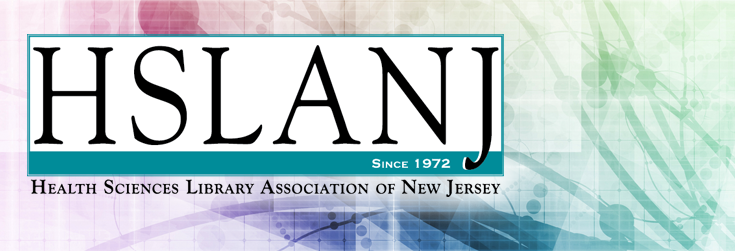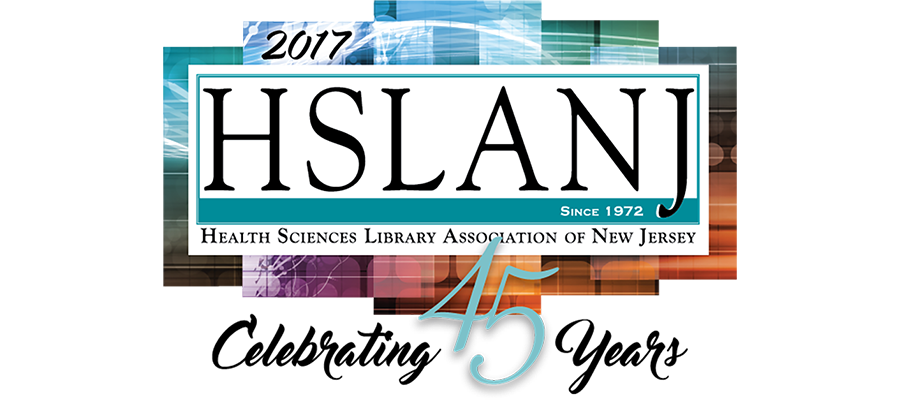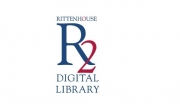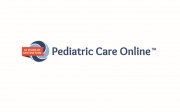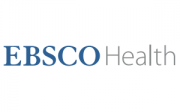NJ-Based Healthcare Nonprofit HSLANJ Celebrates 45 Years; Impacts Healthcare in 20-State Region
/ 08 May 2017 / No CommentsThe following news release went out to media outlets across New Jersey, the Mid-Atlantic Region, and beyond:
The impact of a New Jersey-based, non-profit organization formed 45 years ago is touching hospitals and healthcare facilities throughout the Garden State—and is reaching the surrounding Middle Atlantic Region and beyond.
The Foundation of HSLANJ
Founded in 1972, Health Sciences Library Association of New Jersey (HSLANJ) is a non-profit organization encouraging professional development and advancement of librarianship to improve the quality of library services provided by health care organizations.
“Medical librarians are specialists in locating and accessing vital medical and healthcare information for physicians, clinicians, and medical personnel, as well as the general public, from the hospital or medical facility in which they work,” says Robert T. Mackes, HSLANJ executive director. He has led the organization as executive director since 2013.
“HSLANJ was formed in order to help medical librarians—often working solo within a healthcare setting—by providing networking, training, seminars, and other enriching opportunities so that the end result is a stronger, improved network of professionals serving in New Jersey’s hospitals and medical facilities,” says Mackes. “During the organization’s 45 years, the profession has evolved tremendously. Librarians, who were adept at searching printed textbooks, journals, and bound volumes of Index Medicus, are today searching databases and accessing collections that are primarily digital including medical journals, databases, and other resources.”
Professional Accolades
“Networks of professional librarians have huge benefits for the general public, as well as for their colleagues,” says Kathy Schalk-Greene, executive director of the non-profit organization LibraryLinkNJ. “I can’t think of anything more important than good healthcare. HSLANJ’s stellar reputation of service to the medical community in New Jersey is only matched by their consistent sharing of their expertise with all the libraries in New Jersey. Their active participation in LibraryLinkNJ has been a major contribution in ensuring quality health information is available to everyone.”
Additionally, HSLANJ has been hailed as “innovative” and “groundbreaking” for its role in providing digital (electronic) resources to hospitals and medical facilities throughout the Middle Atlantic, Southeastern Atlantic, and New England Regions. While HSLANJ celebrates its 45th year in 2017, an offshoot of the organization known as its Group Licensing Initiative (GLI) marks its 15th year.
The GLI is a consortium in which all hospital librarians within a 20-state region can participate, by purchasing licenses to access digital resources together—in effect, leveraging group purchasing power. The 20-state region extends from Maine to Florida, including Washington D.C, Puerto Rico, and the U.S. Virgin Islands.
Every spring and fall, the consortium negotiates with academic publishers to develop a menu of resources. From this list, hospital librarians can choose the resources appropriate for their collections. In the spring 2017 offer, librarians could choose from more than 700 digital resources from 14 academic publishers, at a cost savings of 15-70% off regular pricing. It was the first time that librarians within the New England Region participated.
“On behalf of the National Network of Libraries of Medicine, Middle Atlantic Region (NNLM/MAR), I congratulate HSLANJ on its 45th anniversary. The Group Licensing Initiative has had a big impact on hospital libraries’ ability to continue to provide subscription resources in times of increased cost. HSLANJ and its members have been important partners in NNLM/MAR’s mission to provide health professionals and the public with access to health information,” says Kate Flewelling, Executive Director, National Network Libraries of Medicine, Middle Atlantic Region, based at the University of Pittsburgh. The region includes all of New Jersey, New York, Pennsylvania, and Delaware.
The Future of HSLANJ and its GLI
“As libraries are becoming dependent on electronic resources, the HSLANJ GLI presents opportunities for them to streamline purchasing, using cost-saving initiatives, building a consortium for hospital librarians, trying to make their dollar go further,” says Mary Piorun, Director, of the National Network of Libraries of Medicine, New England Region, based at the University of Massachusetts Medical School.
More than 125 medical librarians regularly participate in the HSLANJ GLI; one of the charter participants is Barbara S. Reich, Director of the Medical Library at Hackensack University Medical Center, a member of Hackensack Meridian Health.
“Our collection of online resources has expanded greatly and HSLANJ has saved us tens of thousands of dollars over 15 years,” says Reich. “Acquiring high-quality, online resources offers the opportunity for better patient care and patient safety in today’s rapidly-changing healthcare environment.”
“While other consortia do exist, very few consortia are organized like the HSLANJ GLI, offering resources a la carte. Most consortia require an ‘all-in’ model,” says Reich, who also chairs the GLI’s steering committee. “We so appreciate all the publishers who work with us.”
Praise from Medical Librarians
Librarians throughout the 20-state area voice their support and appreciation for the GLI.
“I was a medical librarian in Southern California for a long time. In 2006, when I moved to New York and started at the regional medical library, I was very impressed to see that HSLANJ was a leader in group licensing. I had not experienced that in California and I think they serve a very important purpose. The networking and education is good, but having access to the Group Licensing Initiative and its purchasing power is vital to medical librarians. I think the HSLANJ GLI is a model for medical librarians throughout the country,” says Arpita Bose, Director of the Health Sciences Library, NewYork-Presbyterian Brooklyn Methodist Hospital located in Brooklyn, New York. She began serving on the Group Licensing Initiative’s Steering Committee in 2016.
“As a hospital librarian, it’s always about return on investment. We are in non-revenue-producing positions. But if we’re able to spend the same amount or less money on content resources, and increase what content we make available, that’s how the GLI can help us,” says Meredith Solomon, Associate Librarian, Brigham & Women’s Hospital in Boston, Massachusetts. “Sharing licenses ends up reducing cost. It brings together lots of independent entities as one— working as a team since the licenses are negotiated together. It’s a good collaborative effort; there’s strength in numbers. We can be better at something together, rather than if we each stand alone as separate institutions.”
Both HSLANJ and the GLI are managed by Robert T. Mackes, MLS, AHIP.
“Fifteen years ago, we envisioned the GLI being helpful to hospital librarians in New Jersey,” Mackes says. “A few years later, librarians in southeastern Pennsylvania asked to participate; Delaware soon followed. We were then invited to expand to the Middle Atlantic Region, then the Southeastern Atlantic Region, and now the New England Region—so that the size and scope of the GLI has grown well beyond our original vision.”
“We welcome the challenge and appreciate the ability to impact the health sciences profession for the greater good,” says Mackes. “The expansion has been born out of a great need for hospitals to save money and time. We are extremely grateful to the NNLM and the three regions we now serve, for endorsing us as the lead organization able to provide consortium pricing and quality resources. We never imagined 15 years ago that the GLI would grow to serve such a diverse number of libraries or have such a positive impact on so many librarians, their hospitals, and potentially their quality of patient care.”
For more information, see www.hslanj.org.
The HSLANJ GLI expansion into the NER is funded in part with Federal funds from the National Library of Medicine, National Institutes of Health, Department of Health and Human Services, under Cooperative Agreement Number UG4LM012347 with the University of Massachusetts Medical School, Worcester.
